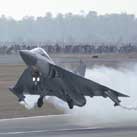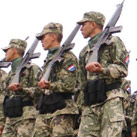Venezuela’s Political Crisis: Continuing Chaos
While the willingness of the Maduro regime to silence the opposition is cause for concern, far more worrying is the prospect of the new Constituent Assembly rewriting the Constitution to eliminate the last vestiges of democratic checks and balances.
- Sanjay Badri-Maharaj |
- August 09, 2017 |













